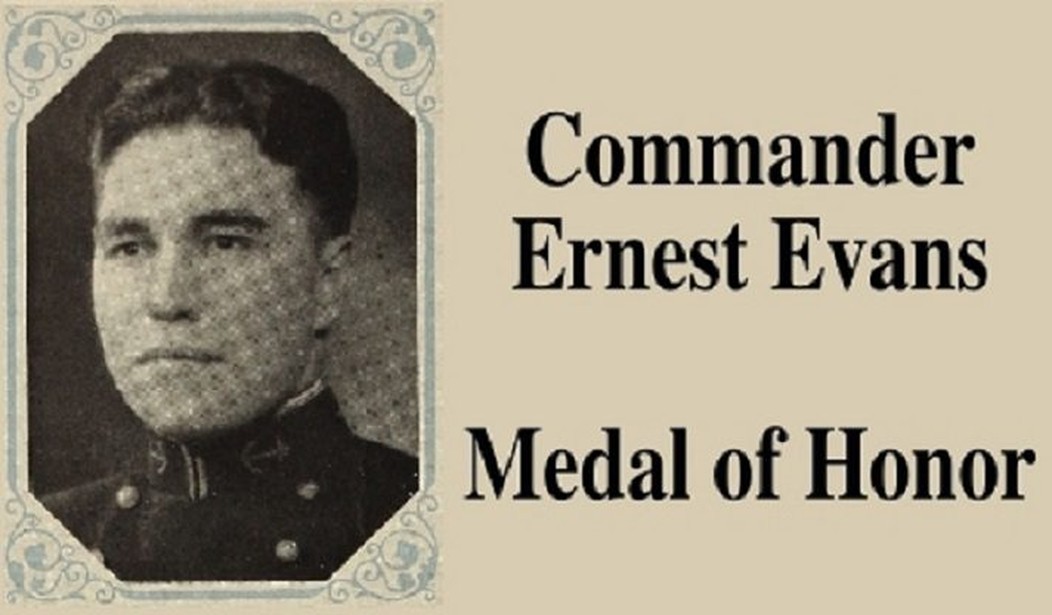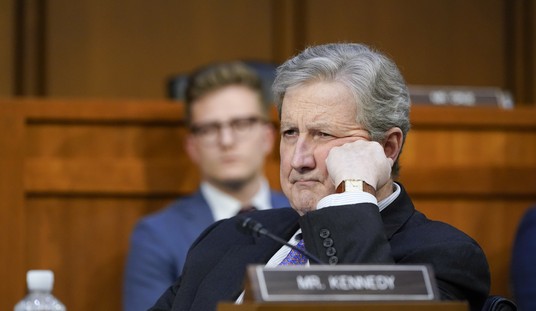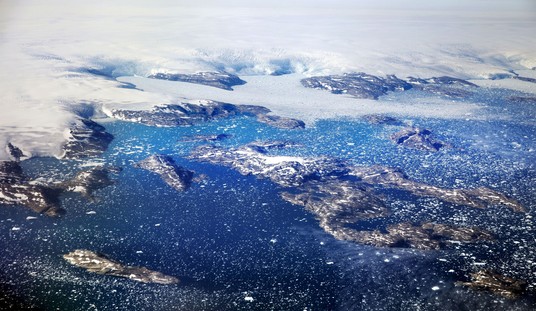On 25 October, 1944, around 10:00 AM, Ernest E. Evans’ life ebbed and ended, his body slipping into the blackness of the ocean depths. The ship he captained, the USS Johnston, her hull littered with shell holes and aflame, was also about to roll over and slip into the inky deeps of the Pacific. Evans and his ship ended life heroically, saving countless lives on ship and shore.
His story begins in Pawnee Oklahoma. Evans was Cherokee, Creek, and ¼ white.
Although Evans lived just miles from the Osage reservation and was subjected to common taunts and insults directed at American Indians in the early 20th century, he vowed to serve his country. He wanted to be a Marine Officer, via the Naval Academy but a knee injury derailed his dream. Undeterred, he enlisted in the Navy. Pawnee is about as far from open ocean as one can get in the continental United States, but the Navy it was for Evans. Undaunted in his desire to serve and lead, he won an appointment to Annapolis through a fleet competition. Evans entered the US Naval Academy in 1927 and graduated in 1931. His midshipmen nickname was “Big Chief”, and he wore it with pride.
On December 7, 1941, Evans was aboard the USS Alden in the West Indies. War. Two years hence, Evans was given the command of the new Fletcher-class destroyer, the USS Johnston. She was commissioned in October 1943. At her christening, Commander Evans uttered these prophetic words:
This is going to be a fighting ship. I intend to go in harm’s way, and anyone who doesn’t want to go along had better get off right now.
One year later, on October 25th, Evans was commanding the Johnston off Samar, Philippines, northeast of Leyte Gulf. The Johnston, along with two other destroyers and four slow destroyer escorts, were shepherding six escort carriers in support of Marines on land. Escort carriers were little more than converted transport hulls with flattops. They were lightly armored and slow.
At 7:00 AM, a Japanese armada of four Battleships, six heavy cruisers, two light cruisers, and 11 destroyers appeared on the horizon. Evans knew what he faced, and it was certain death for all of his task force unless the U.S. destroyers could slow the Japanese down. The escort carriers turned and retreated at flank speed but that wouldn’t be enough to outrun the Japanese. Evans had to slow down the attacking force. He also knew what he was about to do. It was almost certainly a suicide mission. The Johnston laid down a smokescreen to hide the retreat. Then like a wolverine attacking a mass of bears, Evans’ warship attacked. In a running battle that lasted three hours, the Johnston launched torpedo run after torpedo run until it exhausted its stores. Evans led the Johnston as she fired 200 rounds and sunk a heavy cruiser all while taking heavy damage. Evans was gravely wounded early in the fight, but it didn’t take him out of the fight. When his bridge was destroyed, he directed steering from an aft hatch shouting orders down to the crew.
Around 9:30 AM, Johnston, mortally wounded and unable to fight anymore, Evans ordered the crew to abandon ship. Afloat with other crewmen, Robert Billie watched as the Japanese destroyer Yukikaze cruised past the dying USS Johnston. The ship’s captain saluted the dying Johnston and presumably, Johnston’s captain.
Evans was posthumously awarded the Medal of Honor. You can read the citation here. Ernest Evans was one of two destroyer captains awarded the MOH during World War II and the first American Indian to earn the honor while serving in the Navy.
Rear Admiral Samuel Morison said of Evans’ task force:
In no engagement in its entire history has the United States Navy shown more gallantry, guts and gumption than in the two morning hours between 0730 and 0930 off Samar.
The wreck of the Johnston was recently discovered. The wreck was identified as the Johnston by its hull number, 557. She lies 20,000 below the surface, forgotten for 77 years. Evans and 186 crewmen went down with her on October 25th. When I see photos of the wreck, I think of all the heroes lost. We should honor all those who gave their last full measure for the country they loved.
Ernest Evans. American hero.














